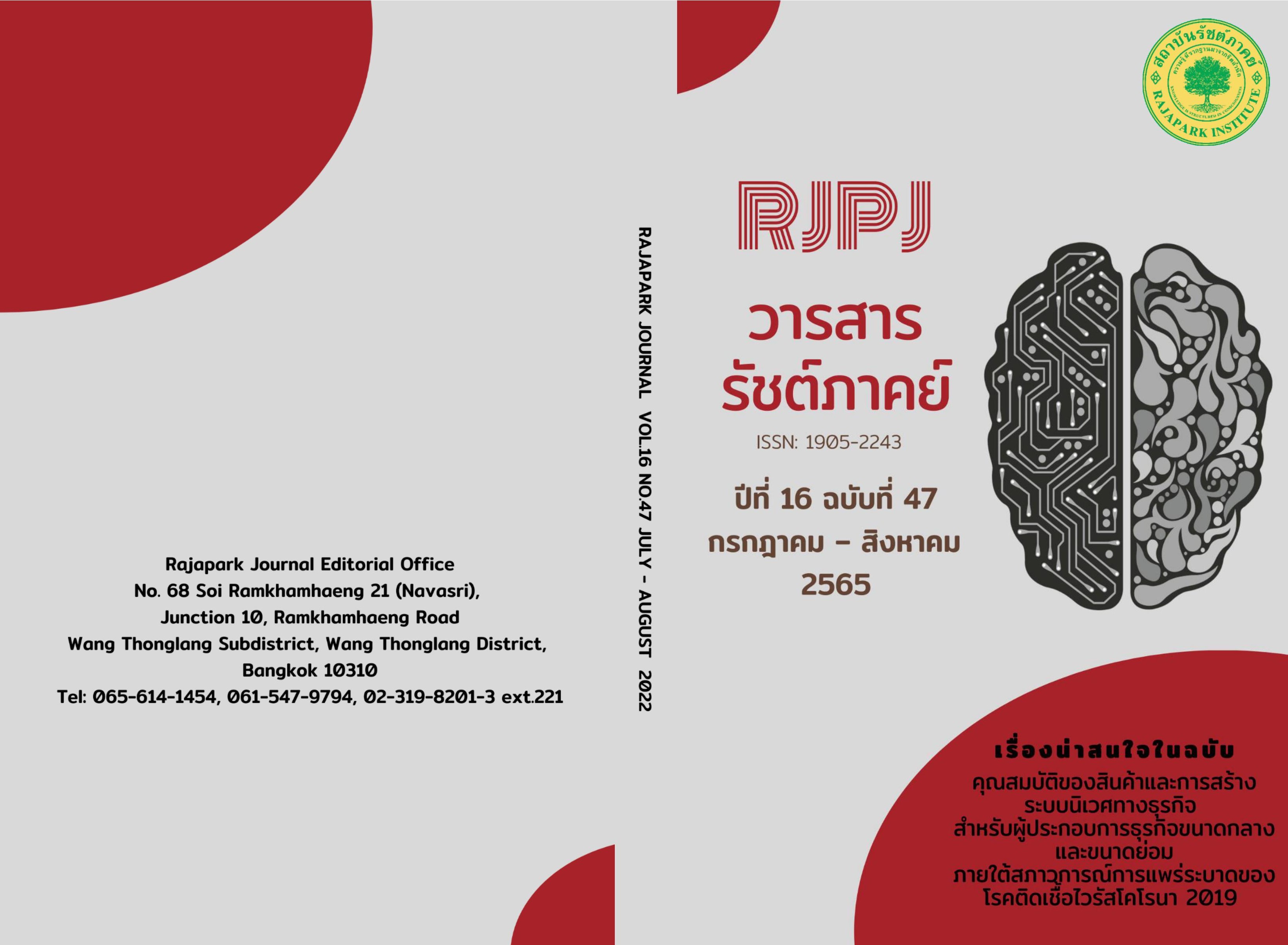English Instruction Difficulties Perceived by Teachers in English as Foreign Language (EFL) Classrooms at the University Level in Thailand
Main Article Content
Abstract
Although English Language Teaching (ELT) development has been in progress for decades, a very low level of Thai English language competency in the previous year reflects the quality of ELT in Thailand and several problems with teaching have been constantly reported. This study inductively investigates instructional difficulties relating to teaching materials, classroom management, teachers, and students experienced by Thai EFL teachers in classroom practice. The samples obtained from purposive sampling included 112 teachers in the top 50 universities in Thailand. A set of questionnaires validated by three experts (α 0.94) were used to collect quantitative data, followed by conducting interviews provided by six volunteer teachers to obtain qualitative data. Descriptive statistics, along with qualitative data, were used for data analysis. The quantitative results found that the most considerable difficulties perceived by Thai EFL teachers were the difficulties relating to students with low English proficiency ( = 3.80, SD = 1.12); classroom management, using mother language (L1) in class, organizing language activities (
= 3.43, SD = 1.16); the difficulties relating to teachers, dealing with difficulties stimulating students to learn, structuring suitable lessons, and monitoring student performances (
= 2.37, SD = 1.12); and teaching materials (
= 2.14, SD = 1.00), respectively. Additionally, the qualitative results were consistent with the quantitative results. As for development for classroom practice, professional development and teacher training regarding instructional techniques, strategies, and classroom management were highlighted.
Article Details

This work is licensed under a Creative Commons Attribution-NonCommercial-NoDerivatives 4.0 International License.
Views and opinions appearing in the Journal it is the responsibility of the author of the article, and does not constitute the view and responsibility of the editorial team.
References
Akbari, Z. (2015). Current challenges in teaching/learning English for EFL learners: The case of junior high school and high school. Procedia - Social and Behavioral Sciences, 199(2015), 394–401.
Aumpimai, P. (2018). Problems in English language teaching and professional development needs of Thai EFL primary school teachers[Master's thesis, Buriram Rajabhat University].
Cohen, L., Manion, L., & Morrison, K. (2018). Research methods in education (8th ed.). Routledge.
Debyasuvarn, B. (2011). A collection of articles on language teachinng. Pasaa Paritat Journal, 25, 22-64. https://www.culi.chula.ac.th/publicationsonline/files/article2/3Uzy1CbmdeMon51453.pdf
Education First. (2021). Education First English Proficiency Index.
Fareh, S. (2010). Challenges of teaching English in the Arab world: Why can’t EFL programs deliver as expected? Procedia-Social and Behavioral Sciences, 2(2), 3600-3604.
Freeman, D., & Richards, J. C. (1993). Conceptions of teaching and the education of second language teachers. TESOL Quarterly, 27(2), 193-216.
Hasanah, N., & Tri Utami, P. (2019). Emerging challenges of teaching English in non-native English-speaking countries: Teachers’ view. English Language Teaching Educational Journal, 2(3), 112-120. doi:10.12928/eltej.v2i3.1134
Hayes, D. (1997). Helping teachers to cope with large classes. Elt Journal, 51, 106-116. doi:10.1093/elt/51.2.106
Hussein, N., & Elttayef, A. (2017). Arab learners' problems in learning English language: A teacher perspective. Research Journal of Finance and Accounting, 8(23), 1-6.
Intarapanich, C. (2012). Teaching methods, approaches and strategies found in EFL classrooms: A case study in Lao PDR. Procedia - Social and Behavioral Sciences, 88(2013), 306–311.
Irawati, P. R., & Listyani, L. (2020). Problems in classroom management encountered by three English teachers in a rural area in Ungaran, Semarang Regency, Indonesia. Rangsit Journal of Educational Studies, 7(1), 46-59.
Iscan, A. (2017). The use of eclectic method in teaching Turkish to foreign students. Journal of Education and Practice, 8(7), 149-153.
Khan, I. A. (2011). Challenges of teaching/learning English and management. Global Journal of Human Social Science, 11(8), 68-80.
Macias, D., & Sanchez, J. (2015). Classroom management: A persistent challenge for pre-service foreign language teachers. PROFILE Issues in Teachers' Professional Development, 17, 81-99. doi:10.15446/profile.v17n2.43641
Methitham, P., & Chamcharatsri, P. B. (2011). Critiquing ELT in Thailand: A reflection from history to practice. Journal of Humanities, Naresuan University, 8(2), 57-68.
Ministry of Education. (2012). The Common European Framework of Reference for Languages (CEFR): Ministry of Education, Thailand.
Noom-ura, S. (2013). English-teaching problems in Thailand and Thai teachers’ professional development needs. English Language Teaching, 6(11). 139-147. DOI:10.5539/elt.v6n11p139
Panich, R. (2016). Teaching second language according to Grammar-Translation Method. Journal of Humanities, Naresuan University, 3(1), 67-77.
Richards, J. C., & Lockhart, C. (1996). Reflective Teaching in Second Language Classrooms. Cambridge University Press.
Son, J. B. (2001). CALL and vocabulary learning: A Review. Journal of English Linguistic Science, 7, 27-35.
Songbatumis, A. M. (2017). Challenges in teaching English faced by English teachers at MTsN Taliwang, Indonesia. Journal of Foreign Language Teaching & Learning, 2(2), 54-67.
Srisa-ard, B. (2002). Introduction to research (7th ed.). Suweeriyasarn.
Sulistiyo, U. (2016). English language teaching and EFL teacher competence in Indonesia. In Proceedings of the Fourth International Seminar onEnglish Language and Teaching, (ISELT-4 , 2016). 396-406. http://ejournal.unp.ac.id/index.php/selt/article/viewFile/7001/5535
Suwannatrai, L. (2018). Guidelines for Development of English Communicative Skills of Traders in Special Economic Zone (SEZ), Mueang District, Mukdahan Province. International Journal of Development Administration Research, 1(1), 19-30.
Suwannatrai, L., & Thumawongsa, N. (2019). The Effect of integrating web-assisted language learning (WALL) on vocabulary enhancement of the elementary English students. In The International Conference on Integrative Medicine for Wellness 2019 (ICIM 2019), (1). Dhurakij Pundit University.
Tabatabaei, O., & Pourakbari, A. (2012). An investigation into the problems of teaching and learning English in the Isfahan Province High Schools, Iran. Journal of Language Teaching and Research, 3. DOI: 10.4304/jltr.3.1.102-111
Webometrics Ranking of World Universities. (2021). Ranking of World Universities. https://www.webometrics.info/en/Asia/Thailand


